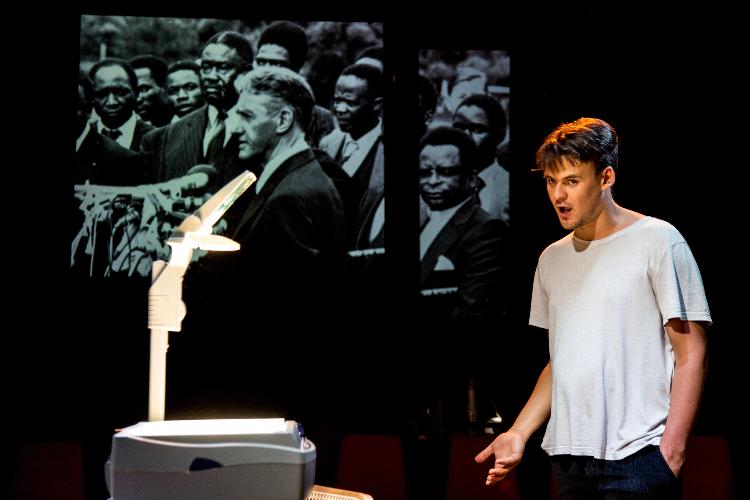Everyone has heard of the 1960s protests against the war in Vietnam and John Lennon’s iconic Make Love Not War. Less often, however, is the light shone on a British revolution in that very same decade. As such, Samuel Rees and Gabriele Uboldi have decided to use their hour at Islington’s The Hope Theatre to bring to life a forgotten topic. In their self-written two-hander, they grapple with the idea of failure. Or to be precise: a failed revolution. Having combined their theatre companies Undone Theatre and Carmen Collective, the two performers present an analytical deep dive into politics in the 1968 revolution at the London School of Economics.
Lessons on Revolution is a layered play, as the two actors keenly explain at the start of the show. The audience will not only recall the events that unfolded in 1968 but also partake in them. Having been offered a gold star sticker upon entering, volunteering audience members take on portraying the main players in LSE’s political pinnacle. Occasionally a script is handed to the chosen few which they get to read out and perform to the best of their ability.
As Uboldi and Rees turn black box theatre into lecture hall, the audience become aware of the hours upon hours spent analysing archived material in the LSE library. With a matter-of-fact tone of voice and the old familiar overhead projector, the two actors present the connection between apartheid-ridden Zimbabwe, the British Petroleum Company, and passionate members of the LSE student union. Whilst Rees delivers date after date and name after name, Uboldi serves as the link between the historical retelling and a look into the writers’ London abode as lessons from the past become lessons for the present.
With an immense amount of passion, the two performers share their findings whilst acknowledging that the show, unlike a Netflix documentary, does not have a definite happy ending, and leaves room for opinions and interpretations. However, as lines are being drawn between the individualism of artificial intelligence and meaningfulness of failure, a lack of purpose becomes apparent. One is left longing for the grand reveal as to what triggered the passionate research into forgotten revolutionaries from the past and what the LSE revolution means to 21st-century actors and writers, Uboldi and Rees.
As Rees and Uboldi present an enigmatic lecture on the political dilemma at LSE, and the audience are surrounded by projections of long-forgotten faces, places, and speeches, the actors’ passion sweeps over the audience like a wave. As the blackbox theatre decked in plushy yellow carpet turns into a place of revolution, to “take up space and seek change” seems a real possibility.
It runs until 7 October.
Review: Shirley Both Photo: Jack Sain

